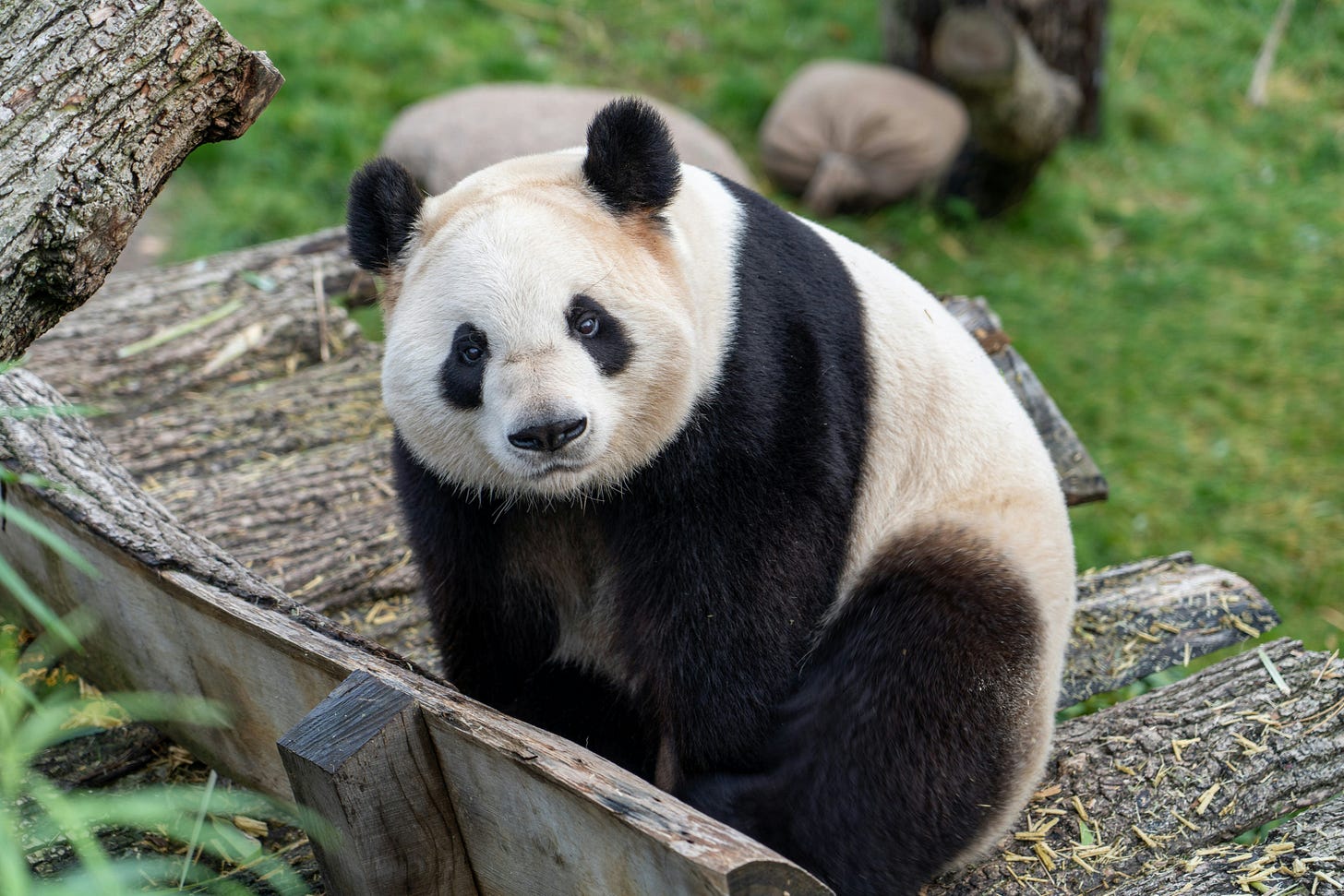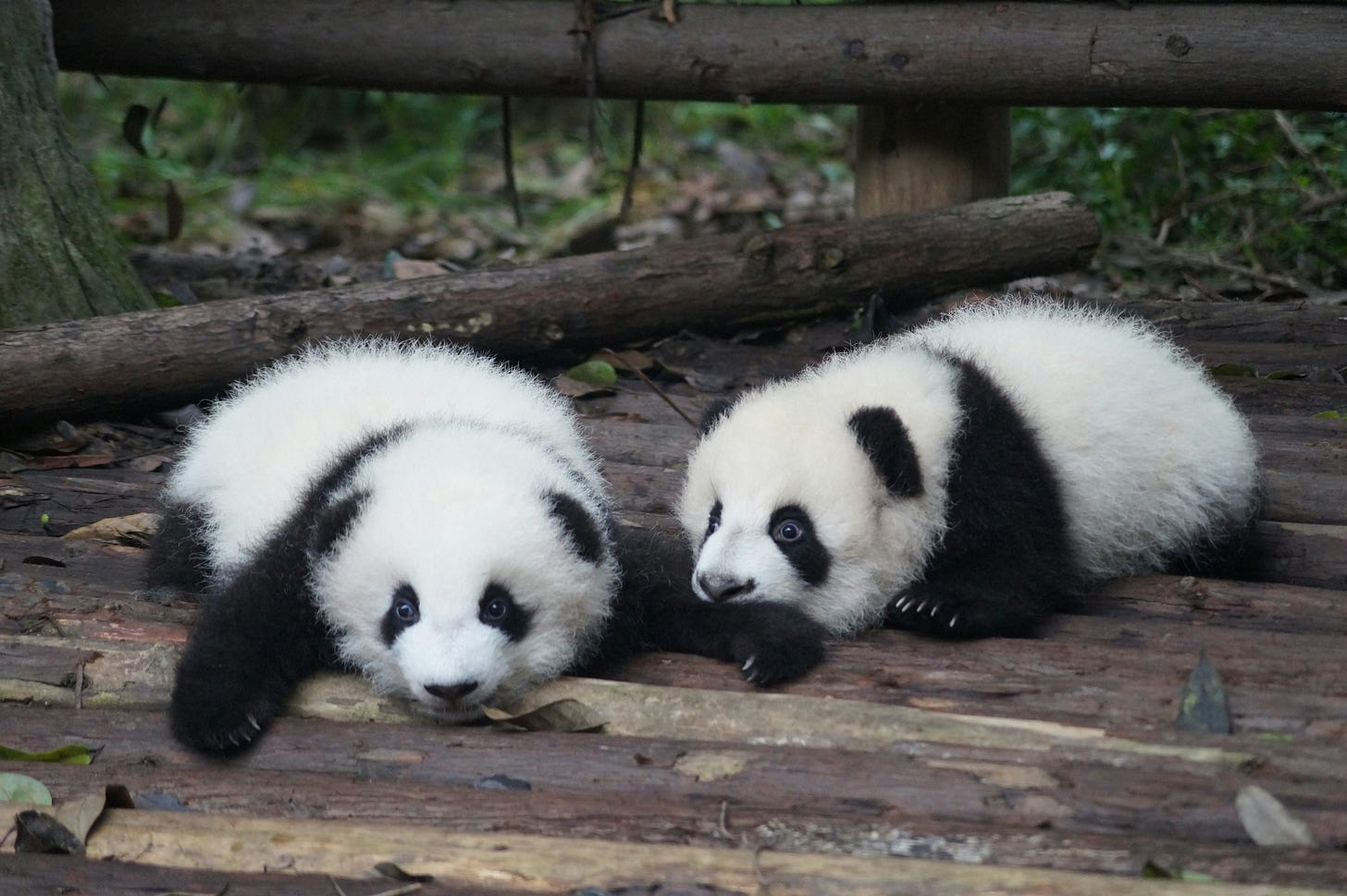Discover China’s Cuddliest Diplomatic Strategy
How China’s Adorable Ambassadors Became Symbols of Peace—but Also Politics and Global Influence
Over 20 zoos around the world host pandas, so there’s a good chance you’ve seen one before. But did you know that behind these adorable, chubby bears lies a sophisticated political strategy known as Panda Diplomacy?
Pandas are native exclusively to China, so anytime you see one outside the Middle Kingdom, it’s there as part of a carefully crafted political arrangement.
Let’s dive into the story of China’s cutest ambassadors!
中华人民共和国的熊猫外交始于20世纪50年代。当时,在毛泽东统治下,新成立的共产党政权开始向社会主义盟国赠送熊猫,旨在加强意识形态的联系并促进外交友好。
1957年,中国第一对熊猫“大使”——“平平”和“姬姬”——来到苏联。此举旨在庆祝十月革命40周年,而十月革命是布尔什维克党在俄国夺取政权的重要日子。
1972年,一个关键时刻来临。在美国总统尼克松对北京进行具有历史意义的访问后,中国将两只大熊猫“玲玲”和“兴兴”赠予美国。此举象征着中国外交政策的战略转变,开始向与西方国家接触、缓和冷战紧张局势的方向迈进。
社会主义盟国 (shèhuì zhǔyì méngguó): Socialist ally countries.
意识形态 (yìshí xíngtài): Ideology.
苏联 (Sūlián): Soviet Union.
关键时刻 (guānjiàn shíkè): Critical moment.
来临 (láilín): Arrival.
战略 (zhànlüè): Strategy.
冷战 (lěngzhàn): Cold War.
迈进 (màijìn): To march forward.
The People’s Republic of China’s panda diplomacy began in the 1950s. Under Mao Zedong's leadership, the newly established Communist regime started gifting pandas to socialist allies to strengthen ideological ties and foster diplomatic goodwill.
In 1957, China sent its first pair of panda "ambassadors," Pingping and Jiji, to the Soviet Union to commemorate the 40th anniversary of the October Revolution, a pivotal event marking the Bolsheviks' rise to power in Russia.
A turning point came in 1972 when, following U.S. President Richard Nixon's historic visit to Beijing, China gifted two pandas, Lingling and Xingxing, to the United States. This act symbolized a strategic shift in China's foreign policy, moving toward engagement with Western nations and easing Cold War tensions.
同年晚些时候,中日实现外交关系正常化后,日本也收到了两只大熊猫——“康康”和“兰兰”。
到1984年,在邓小平主政时期,熊猫外交策略从直接赠送转变为长期租借,这一转变体现了中国以市场为导向的经济改革。
在租借模式下,大熊猫的租借费用相当可观,通常为每年50万至100万美元。这些收入直接用于中国的熊猫保护工作。这些租借协议还常常催生与熊猫保护相关的联合研究项目。
相当可观 (xiāngdāng kěguān): Considerable; impressive.
保护 (bǎohù): Protection; to protect.
协议 (xiéyì): Agreement; protocol.
催生 (cuīshēng): To give rise to; to spur.
Later that year, after the normalization of diplomatic relations between China and Japan, two pandas—Kang Kang and Lan Lan—were sent to Japan.
By 1984, during Deng Xiaoping’s leadership, China shifted its panda diplomacy from outright gifts to long-term leases, reflecting the country's market-oriented economic reforms.
Under the leasing model, fees for panda rentals are significant, typically ranging from $500,000 to $1 million annually. These funds directly support panda conservation efforts in China. The agreements also often result in joint research projects related to panda conservation.
不言而喻,就是因为大熊猫的可爱和魅力。大熊猫憨态可掬的举止让人们将其视为和平和友谊的象征。
但大熊猫的魅力绝不仅限于此。其中一点就是大熊猫具有鲜明的中国特色——野生大熊猫仅存在于中国,但其魅力却无处不在,深入人心。长期以来,大熊猫一直吸引着全球对濒危和脆弱物种的关注,突显气候变化等问题的重要性。事实上,世界自然基金会(WWF)的徽标就是一只熊猫,这进一步证明了熊猫作为保护运动普遍象征的吸引力。
不言而喻 (bùyán'éryù): It goes without saying; self-evident.
魅力 (mèilì): Charm; appeal.
憨态可掬 (hāntài kějū): Endearingly naive and clumsy.
举止 (jǔzhǐ): Behavior; manners.
鲜明 (xiānmíng): Distinct; striking.
无处不在 (wúchù bùzài): Omnipresent; everywhere.
濒危 (bīnwēi): Endangered; critically threatened.
脆弱 (cuìruò): Fragile; vulnerable.
The obvious reason is their cuteness and charm. With their endearing demeanor, pandas are seen as symbols of peace and friendship.
However, the appeal of pandas goes beyond their cuteness. They are a distinctly Chinese species—wild pandas are found only in China, yet their allure is universal. Pandas have long attracted global attention to endangered and vulnerable species, highlighting critical issues like climate change. The World Wildlife Fund (WWF) logo, featuring a panda, further underscores the species' role as a symbol of conservation efforts.
尽管大熊猫作为形象大使的效果显著,但其在人工繁殖方面却困难重重。大熊猫的交配窗口短暂,且需求条件复杂,导致繁殖难度极高。
另一个不容忽视的挑战是,大熊猫的饲养会给所在国家带来巨大的经济压力,饲养环境要求极为严苛。
然而,美国的一项实证研究显示,熊猫外交在树立对中国文化、人民和政府的积极态度方面相对有效。
人工繁殖 (réngōng fánzhí): Artificial breeding.
交配 (jiāopèi): Mating.
不容忽视 (bùróng hūshì): Cannot be ignored.
饲养 (sìyǎng): To raise; to rear.
极为严苛 (jíwéi yánkē): Extremely strict.
树立 (shùlì): To establish; to set up.
Despite their effectiveness as goodwill ambassadors, pandas face significant challenges in captive breeding. With a narrow reproductive window and specific requirements, pandas are notoriously difficult to breed.
Another challenge is the high cost of maintaining pandas, as they require extremely specific care and living conditions.
Nevertheless, a U.S. study found that panda diplomacy is relatively effective in fostering positive perceptions of Chinese culture, people, and government.
You will never look at a panda the same way.
Thank you for reading Mandarin Zest. We love to read Chinese with you and want to continue in the future. Please consider pledging to help us write the weekly posts and more! Any pledge, montly or yearly, would be very helpful. 谢谢
Antoine & Dorota







Great love that